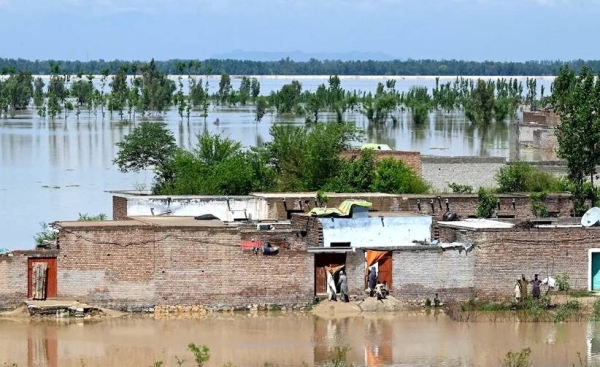
The Taliban’s seemingly unstoppable advance across Afghanistan continued on Friday, as insurgents took control of four more provincial capitals, having on Thursday seized Kandahar and Herat, the second and third-largest cities.
With Afghan government forces in disarray, and amid reports that the vice-president has fled, the Taliban are heading inexorably towards Kabul. They control more than two-thirds of the country, just as the US plans to pull out its last remaining troops.
US military intelligence suggests Kabul could come under pressure within 30 days. If trends continue, the Taliban are likely to gain full control of the country in months, it says.
The situation is changing at a dizzying pace. After a remorseless offensive in the north in which Herat fell, the Taliban have consolidated ground in the south, the group’s traditional ethnic Pashtun base.
The group says it has seized Kandahar and is running the city. Attaullah Afghan, the head of the provincial council in Helmand, said the insurgents had captured the provincial capital of Lashkar Gah after weeks of fighting.
Atta Jan Haqbayan, the provincial chief in Zabul province, said the local capital of Qalat had fallen. Tarin Kot in southern Uruzgan and Firuz Koh in central Ghor province surrendered in a pattern of abandonment seen widely since the Taliban began their advance eight days ago.
By Friday afternoon, they had pushed into the capital of Logar province, 50 miles south of Kabul. Hasibullah Stanikzai, the head of the Logar provincial council, said there was fighting inside Puli-e Alim, and that government forces were holding the police headquarters and other security facilities.
Gunfire could be heard in the background as he spoke by phone from his office, the Associated Press reported. The Taliban said they had captured the police headquarters and a prison.
The US and UK are scrambling to get most of their nationals out of Kabul. The Biden administration said it was sending in 3,000 troops to help evacuate the US embassy. The UK said about 600 troops would be deployed on a short-term basis to support British nationals leaving.
Canada is sending special forces, while Germanyis reducing embassy staff to an “absolute minimum”. The Danish and Norwegian embassies are to be closed.
On Friday, Boris Johnson, the UK prime minister, said he “shares the sorrow of all the families who have lost loved ones over the last 20 years”.
“I thank them for the immensity of the sacrifice,” he said. “But I don’t believe it was in vain. Because ... to a very large extent the threat of al-Qaida was greatly, greatly reduced and there was the further advantage that 3 million girls were educated.
“What we must do now is not turn our backs on Afghanistan, but continue as a member of the [UN security council], a country deeply involved, to work with our partners and make sure the government of Kabul does not allow that country again to be a breeding ground for terror.”
Even senior government figures appear to be leaving. Afghanistan’s first vice-president, Amrullah Saleh, is reported to have fled to Tajikistan. In Herat, veteran anti-Taliban warlord Ismail Khan gave himself up to insurgents, who said he had joined them.
Khan’s surrender is a demoralising blow to anti-Taliban forces. The warlord and former Herat governor fought with the mujahideen against the Soviet-backed government in Kabul. In the 1990s, he battled the Taliban as part of the northern alliance.
Khan had promised to hold Herat and to turn back the Taliban tide. But his fighters were overwhelmed on Thursday and Taliban insurgents seized administrative buildings and the police station.
The Taliban circulated photos and a video showing Khan, who appeared unharmed, after his capture. In a brief interview, he called on Afghans to live together “in peace and harmony”.
“The city looks like a frontline, a ghost town,” the provincial council member Ghulam Habib Hashimi said by telephone from Herat, a city of about 600,000 people. “Families have either left or are hiding in their homes.”
Of Afghanistan’s main cities, the government still holds Kabul, Mazar-i-Sharif in the north, and Jalalabad near the Pakistani border in the east. The territory notionally under its control appears to be shrinking.
The UN secretary general, António Guterres, urged the Taliban to end the fighting, warning: “Afghanistan is spinning out of control … This is the moment to halt the offensive. This is the moment to start serious negotiation. This is the moment to avoid a prolonged civil war, or the isolation of Afghanistan.”
He was “deeply disturbed by early indications that the Taliban are imposing severe restrictions on human rights in the areas under their control, particularly targeting women and journalists”.
“It is particularly horrifying and heartbreaking to see reports of the hard-won rights of Afghan girls and women being ripped away from them.”
The speed of the offensive, as US-led foreign forces prepare to complete their withdrawal by the end of this month, has sparked recriminations over President Joe Biden’s decision to withdraw. The US president said this week he did not regret his move, noting that Washington had spent more than $1tn on America’s longest war and lost thousands of troops.
But senior Republicans have lambasted the US administration’s Afghan policy. Senate minority leader Mitch McConnell has warned that America’s retreat risked a replay of its humiliating withdrawal from Saigon at the end of the Vietnam conflict in 1975. The US was “careening toward a massive, predictable, and preventable disaster”, McConnell said.
This article was amended on Friday 13 August 2021 to remove a reference to Herat’s “great mosque dating back to 500BC”. The city dates back that far, but work on the mosque began in about AD1200.












